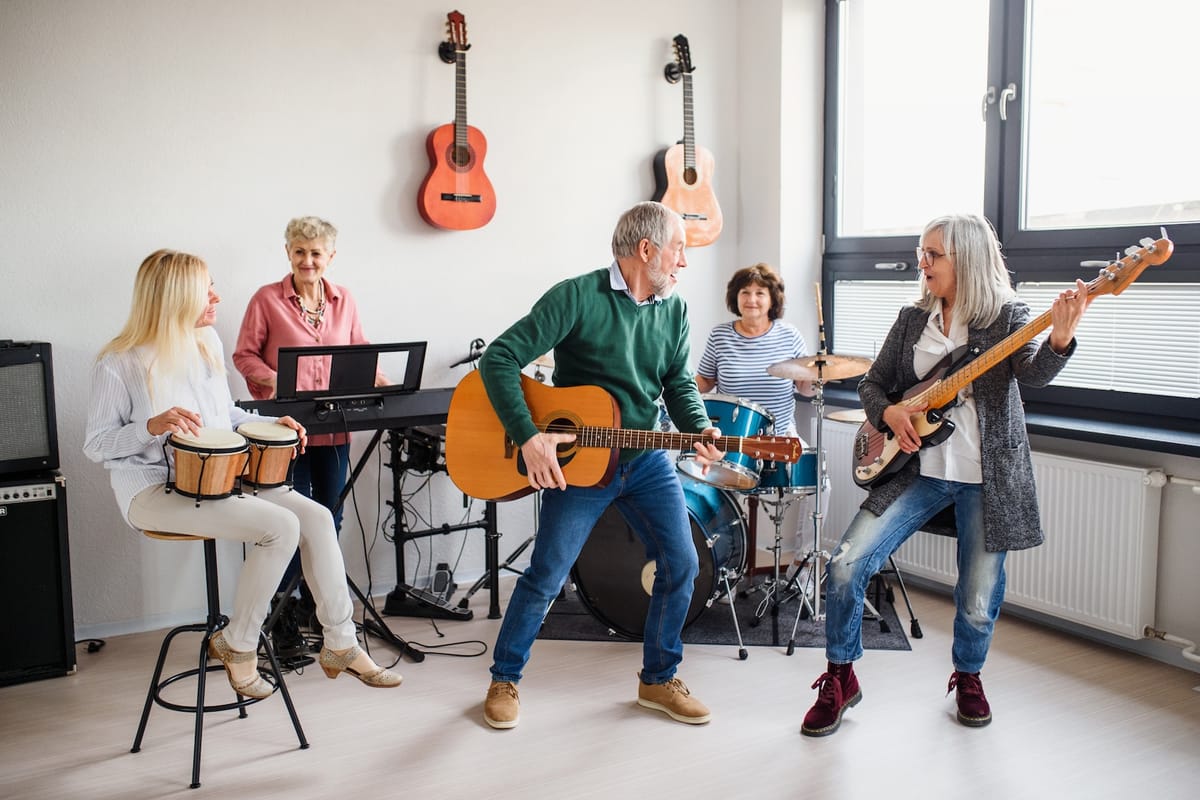

Cognitive Benefits
Engaging in music, particularly playing a musical instrument, has been shown to have profound cognitive benefits for seniors. Studies have indicated that this activity can improve memory and the ability to solve complex tasks, often referred to as executive function. For instance, a study conducted by the University of Exeter found that playing a musical instrument, especially the piano, is linked to better brain health in older adults, enhancing their cognitive reserve and agility.
Physical Benefits
Playing a musical instrument is not just a mental exercise but also a physical one. It requires concentration, muscle memory, and fine motor skills, which can be particularly beneficial for seniors. A study at Western Sydney University’s MARCS Institute for Brain, Behaviour and Development found that seniors who took piano lessons showed improvements in their physical functioning, including faster task completion and stronger connections between their brain and hand muscles.
Social Benefits
Music-making is often a social activity, which can be highly beneficial for seniors. Joining a group to play instruments or sing can help combat loneliness and improve social interaction. Participants in the Western Sydney University study enjoyed the group aspect of their piano lessons, which added to their overall enjoyment and social well-being.
Quality of Life and Mood
Active music-making has been linked to an improvement in the quality of life and mood of older adults. An analysis published in the Journal of the American Geriatrics Society found that music-based interventions can support the cognitive, emotional, and social well-being of older adults, particularly those with mild cognitive impairment or dementia.
Accessibility and Encouragement
It is never too late to start learning a musical instrument, and this activity is accessible to seniors of all skill levels. The brain's plasticity allows for new skills to be learned at any age, making it an ideal activity for seniors looking to engage in something new and challenging. Encouraging older adults to return to music or start learning an instrument can be a valuable part of public health initiatives aimed at promoting healthy aging.
Impact on Neurodegenerative Conditions
For seniors with neurodegenerative conditions such as Alzheimer's Disease, music can play a significant role in maintaining cognitive health. Listening to music, even if it is unfamiliar, can activate brain regions linked to reward and help bring back memories, providing a way for older adults to stay connected to their past and their loved ones.
In Summary
Playing a musical instrument offers a wide range of health benefits for seniors, from cognitive and physical improvements to social and emotional enhancements. It is an activity that can be enjoyed at any age and is highly recommended for those looking to maintain a healthy and active lifestyle in their later years.
Dues are $12 per year. Member benefits:
✅ Ad-Free Website Viewing
✅ Advocacy for Republican Seniors
✅ 120+ Senior Discounts
✅ Member Only Newsletters